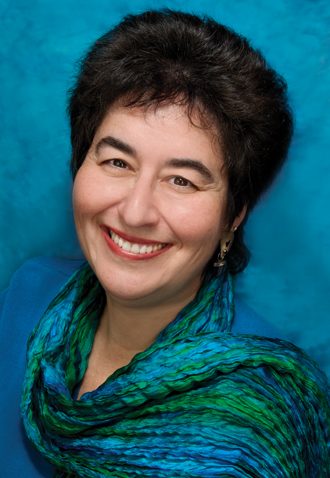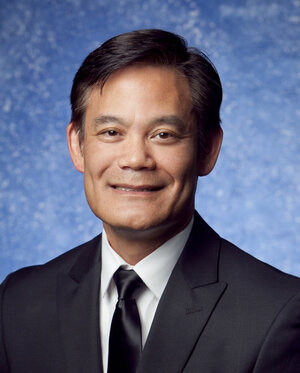 Hi everyone! Today I am introducing the Office of Accessibility and VSA at the John F. Kennedy Center for the Performing Arts in Washington, D.C. along with our guests that we will be speaking with on Monday.
Hi everyone! Today I am introducing the Office of Accessibility and VSA at the John F. Kennedy Center for the Performing Arts in Washington, D.C. along with our guests that we will be speaking with on Monday.
The purpose of the Office of Accessibility and VSA is to “provide people of all ages living with disabilities the opportunity to learn through, participate in, and enjoy the arts.” At the Kennedy Center, “the arts” includes but is not limited to music performance, dance, theater, visual arts, and literary arts. The Office of Accessibility aims for inclusion in these areas through arts education opportunities, means for creative exploration about disabilities, and accessible performances. For example, the Office of Accessibility and VSA hosts performance competitions and playwriting workshops as well as conferences, workshops, webinars, and internships to increase knowledge about accessibility in the arts.
 The VSA, which stands for “Very Special Arts” was founded in 1974 by Jean Kennedy Smith. As the name may suggest, Jean Kennedy Smith was sister to President John F. Kennedy, Senator Robert Kennedy, and founder of the Special Olympics Eunice Kennedy Shriver. Following in the political footsteps of her other family members, Jean Kennedy Smith was appointed Ambassador to Ireland in 1993 through 1998 under President Bill Clinton.
The VSA, which stands for “Very Special Arts” was founded in 1974 by Jean Kennedy Smith. As the name may suggest, Jean Kennedy Smith was sister to President John F. Kennedy, Senator Robert Kennedy, and founder of the Special Olympics Eunice Kennedy Shriver. Following in the political footsteps of her other family members, Jean Kennedy Smith was appointed Ambassador to Ireland in 1993 through 1998 under President Bill Clinton.
Until 2005, the VSA operated as its own independent organization. In 2005, the organization formed an official affiliation with the Office of Accessibility at the Kennedy Center. This affiliation allowed both offices to expand their resources and projects to further increase their ability to search for and provide means of inclusion and accessibility among their audience. In 2011, this affiliation became an official merger, bringing us to the Kennedy Center Office of Accessibility and VSA that we see in operation today.
The Office of Accessibility and VSA offer many programs and services to people with disabilities to encourage creativity and storytelling. One such program is known as the International Young Soloists Award Program. This competition is open to soloists and ensembles of any musical genre who perform with a disability. Open to performers aged 14-25, participants are eligible to receive up to $2,000 towards their music programs or further educational experiences. Perhaps the most well-known proponent of this program is violinist Itzhak Perlman, who himself struggled with the effects of polio throughout his life. The Playwright Discovery Program encourages high school students with disabilities to write short 10-minute theatrical scripts about the experiences of someone living with a disability. For visual artists, the Office of Accessibility and VSA host an Emerging Young Artist Program with the goal of amplifying participants through career development and professional empowerment. In 2020, the creative theme was entitled “Merge”, and inspired students to “merge” their disability with other aspects of their identity. Winners in this program are selected for a national exhibition put on by the Kennedy Center. (Here is the collection of the winners from 2019!)
In performances, the Office of Accessibility and VSA work to provide resources and technology that makes the act of attending a performance more accessible to those with other needs. For instance, the Kennedy Center provides large-print and Braille Playbills for those whose vision is impaired along with ensuring spaces are physically accessible via wheelchair.
OUR GUESTS

Betty Siegel has been the Director of the Office of Accessibility and VSA at the Kennedy Center since 1999, even before the VSA became affiliated with the Kennedy Center. She is extremely knowledgeable in disability rights law and regulation, which she uses in practice in her work. She provides guidance on accessible building design considerations as well as keeping up to date with new assistive technologies that can be provided as resources by the Office of Accessibility and VSA.

Diane Nutting is a consultant for accessibility and inclusion. Before shifting to specialize in accessibility, Nutting worked at theater companies in education and outreach departments. Since becoming a consultant in 2014, Nutting has worked with the Disney Theatrical Group, multiple Smithsonian Collections, Ford’s Theatre, Shakespeare Theatre Company, the Kennedy Center, and many, many more arts organizations across the United States.

Finally, we will also be speaking with Roger Ideishi, the Program Director of Occupational Therapy and Professor of Health, Human Function, and Rehabilitation Services at the George Washington University in Washington, D.C. Previously a Professor of Occupational Therapy at Temple University, Ideishi has used his knowledge in occupational therapy and his law degree to collaborate with institutions and organizations focused on cultural and artistic accessibility.
I was really excited when I saw we would be touching on accessibility within the arts. Growing up, my mom worked in (and therefore I volunteered in) our school’s special education classroom. Many of her students’ favorite part of their day was going to band or choir classes, but were oftentimes affected by the high volume associated with musical arts. I’m eager to learn about ways in which smaller, less well-funded institutions like schools have gone about increasing accessibility and inclusion within their organizations and what the future of adaptive technologies in classrooms could look like.
To hear this post, click this link!
